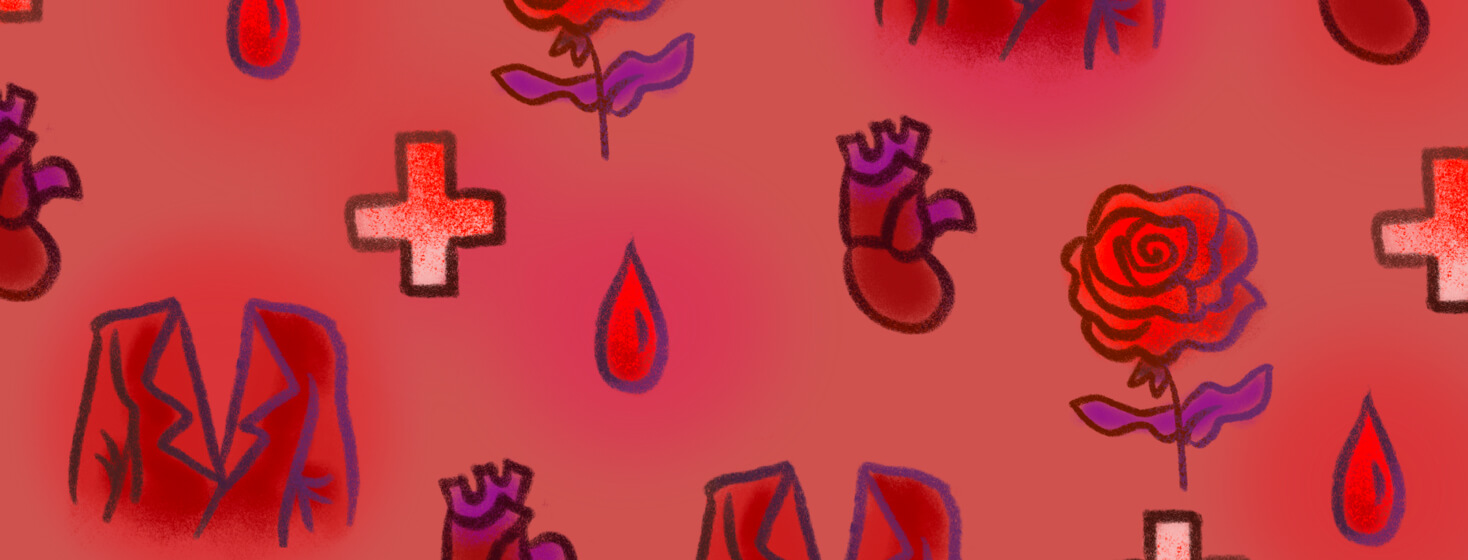The Many Colors of Cystic Fibrosis: Red (Part 2)
Have you read my most recent post, “The Many Colors of Cystic Fibrosis: Red (Part 1)?” If not, just know that I am a huge fan of “Joseph and the Technicolor Dreamcoat.” The colors in Joseph’s coat inspired me to view cystic fibrosis through rose colored glasses.
Let’s keep talking about red
Food
I graduated from Kean University’s School of Communication, Media, and Journalism. The first thing I learned was desirable colors like red can cause hunger. That’s why fast-food restaurants like McDonald's use those colors in their logos.
Unfortunately, despite my vigorous appetite and daily fast food, I always had trouble maintaining weight. Back in 2018 at the age of 25, I was barely 95 pounds, even with 5,000+ calories per day. By June of 2019, I was barely 80 pounds, even with a feeding tube for extra supplements.
Two years later at the age of 28, I weigh in at 130 pounds, and I’m having trouble taking it off. The gain is likely due to the impact that my lung transplant had on my overall health. My body doesn’t have to burn as many calories to make up for my distressed lungs. I’m also on a full dose of Trikafta, which causes weight gain.
Blood Cells
Red blood cells (RBC) are the most common cell type. They deliver oxygen to your tissues. Beginning in October of 2016, my routine bloodwork showed that my red blood cells were alarmingly high. This can indicate heart failure, carbon monoxide exposure, and difficulty supplying oxygen. In my case, it was a first look at my declining lungs.
Red Flags and Rosy Cheeks
My high RBC count was just one of the red flags that led to my transplant. I was resistant to all antibiotics. My dependency on 6-liters of oxygen along with my lungs inability to remove carbon dioxide indicated I was in end stage cystic fibrosis, my inability to care for myself meant I had no quality of life.
I received my bilateral lung transplant on June 14, 2019. When I woke up from the surgery, I heard my mom exclaim, “Your cheeks are red!” I’d been a yellow-gray color for years. My rosy cheeks still bring my mom joy.
Ribbons
Cystic Fibrosis Related Diabetes (CFRD) is one of the most common diseases for CF patients, but many diseases are represented by red awareness ribbons:
I suffer from POTS (Postural Orthostatic Tachycardia Syndrome) and high blood pressure. These are common in dysautonomia patients like me, and worsen when we’re dehydrated.
During a summer vacation back in summer of 2018, I fainted on the beach in front of my husband, mother, and mother-in-law. My heart rate was extremely high, causing me to lose consciousness.
Substance abuse is also represented by the color red. I took many, many painkillers back in the day to relieve my general aches and pains – Aleve, Tylenol, and Motrin. I haven’t had any issues with substance abuse as I am no longer on any of those painkillers, but I can understand how pain can become an enabler. CF patients like myself are often in isolation and isolation can affect mental health. Meaning, cystic fibrosis produces multiple pathways to substance abuse.
I’m also at a higher risk for cancer post-transplant – another ribbon – due to my suppressed immune system and colonization with EBV. In addition to routine PET scans, I receive weekly bloodwork to keep tabs on my EBV levels.
Focus on the positives
Despite all the relationships between red and cystic fibrosis, my new goal is to focus on the positives. Instead of blood, I will picture myself walking the red carpet, Tony Award in hand. I’ll look for the red herrings in every Netflix original movie that I watch in the comfort of my isolated home, and I’ll spread awareness of 65 roses.
What does the color red mean to you?

Join the conversation